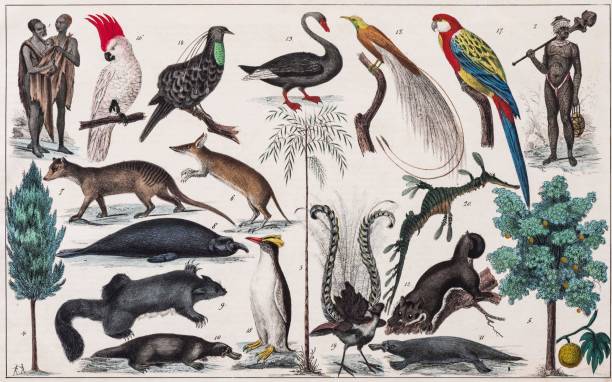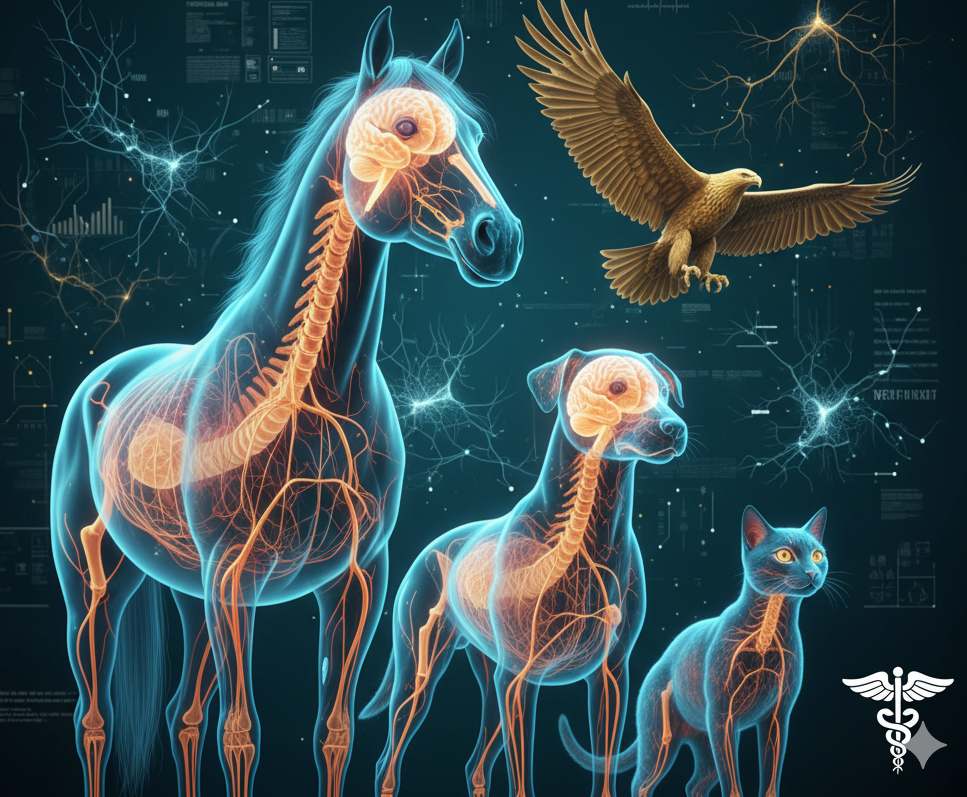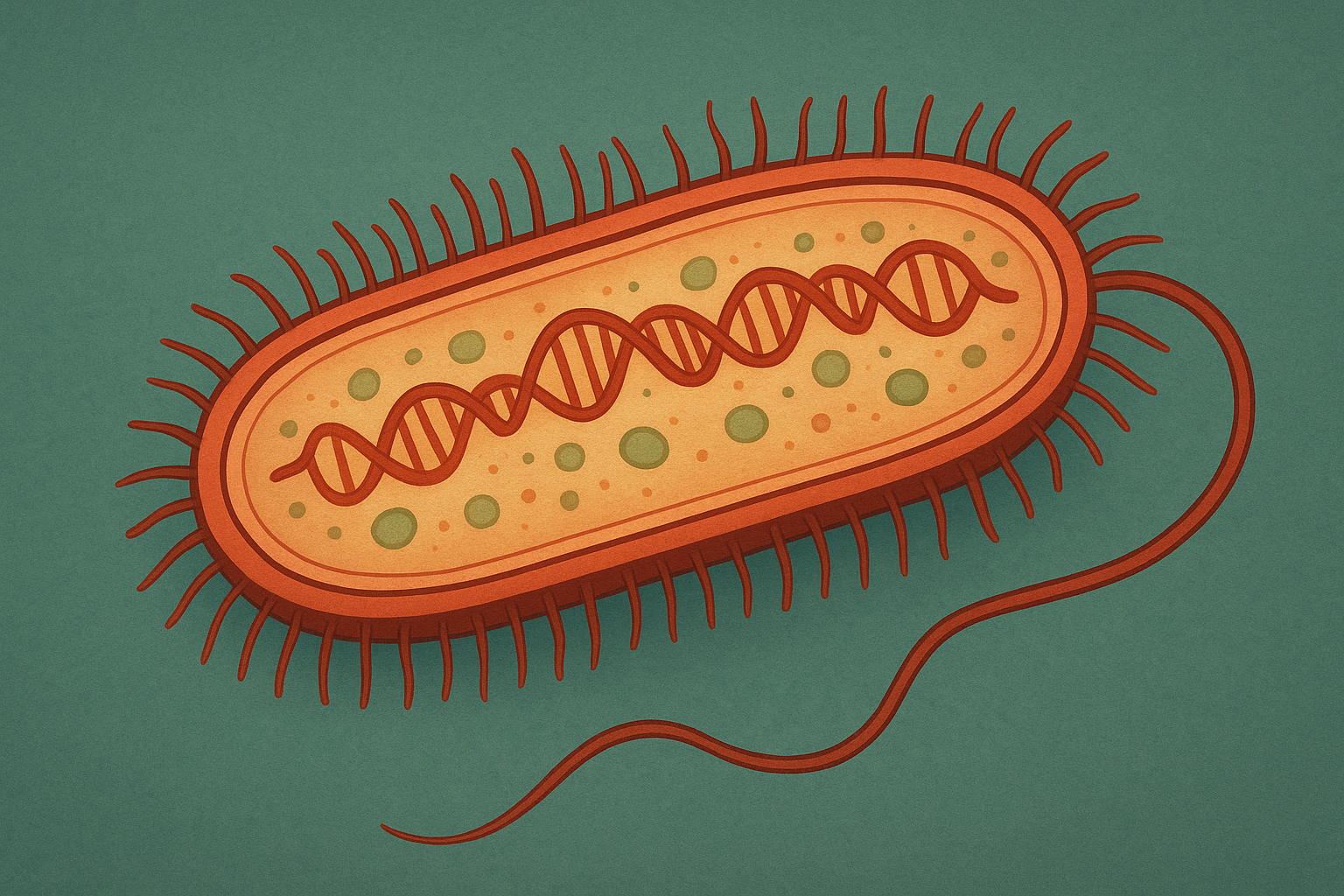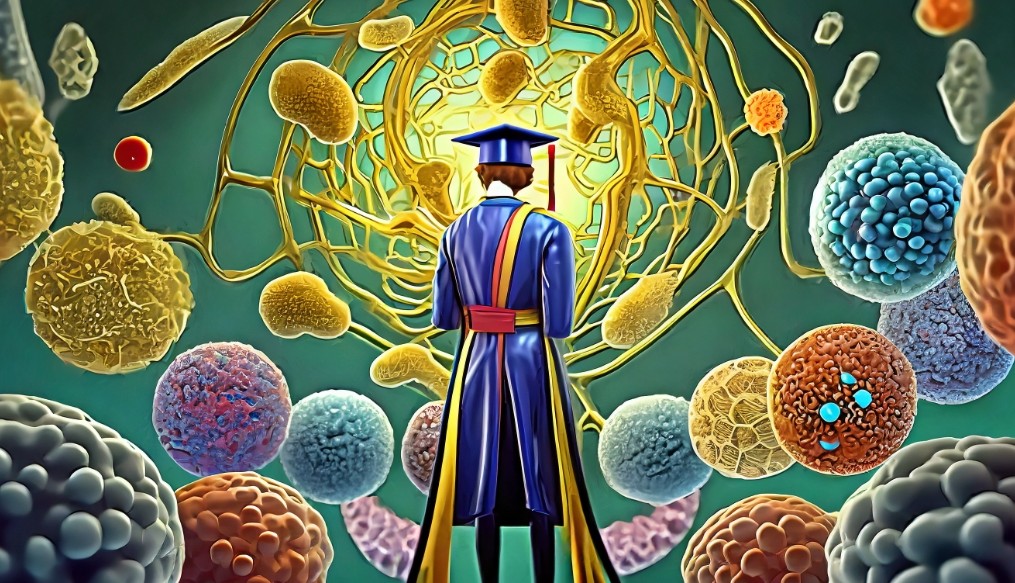
The aim of this course is to :
- Identify an animal's breed (within the main breeds or breed groups) and its suitability or usefulness.
- Make a value judgment on productive or morphostructural information of any important animal breed, in the main domestic species.
- Understand the lexicon that defines the breeds and its variation of phaneros, morphology and productivity. Know the most important identification methods and make decisions about their usefulness in specific situations.
- Present a subject work in an effective way and to be able to carry it out successfully. Know the different basic aspects of the handling of animals.
- منشئ المقرر: yacer douadi

- منشئ المقرر: Sara BENREZAK

L'anatomie est la science qui étudie l'organisation des êtres vivants. Elle est le socle fondamental de la médecine vétérinaire, car elle fournit les connaissances indispensables pour comprendre l'organisme animal sain et ses fonctions.
Notre approche est générale et comparative : nous examinons les structures de toutes les espèces domestiques, en soulignant à la fois leurs points communs et leurs différences anatomiques caractéristiques.
Ce module est divisé en trois composantes principales :
-
Neurologie : Étude du système nerveux.
-
Splanchnologie : Étude des viscères et des organes internes.
-
Angiologie : Étude du système circulatoire (cœur, vaisseaux, etc.).
En fin de compte, l'objectif de ce cours est de vous permettre d'adapter ces connaissances anatomiques aux exigences de la pratique professionnelle. Cette maîtrise est essentielle pour réussir dans les domaines cliniques clés, notamment :
-
L'Imagerie Médicale (radiographie, échographie).
-
La Sémiologie.
-
La Propédeutique.
-
La Chirurgie.
En d'autres termes, l'anatomie est l'outil indispensable pour devenir un clinicien compétent.
- منشئ المقرر: mouad debbous

Welcome, dear students, to the courses of General bacteriology
General bacteriology is a branch of microbiology that focuses on the study of bacterial structure, metabolism, classification, and behavior, as well as their interactions with the environment and living organisms.
This course, built upon your prior knowledge of natural and life sciences, aims to introduce you to the fundamental concepts of bacteriology: bacterial structure and multiplication, virulence factors, host–bacterium interactions, and bacteria of veterinary and zoonotic importance.
By the end of this course, you will be able to differentiate bacteria according to their specific characteristics, using a reasoned diagnostic approach with appropriate culture media.
- منشئ المقرر: Hana Nedjma BELABED

Immunovaccinology is an essential module in the curriculum for second-year veterinary science students. In a context where infectious diseases pose a significant threat to animal and public health, understanding immune mechanisms and vaccination strategies is crucial. This module offers an integrated approach that combines immune biology and the principles of vaccination, enabling future veterinarians to develop essential practical and theoretical skills. Through theoretical courses and practical work, students will learn how vaccines stimulate the immune response, as well as the different types of vaccines used in veterinary practice. They will also explore the impact of immunization on animal population health, epidemic prevention, and food safety. This module is therefore a cornerstone of veterinary training, preparing students to become professionals capable of contributing effectively to animal health and the control of infectious diseases.
- منشئ المقرر: abdeldjalil dahmane

Welcome to this course on Reproductive Physiology, an essential part of your veterinary science training. Reproduction is a fundamental process for the survival and continuity of animal species, and a thorough understanding of its physiology is crucial for any veterinarian.
This course will allow you to explore the hormonal, cellular, and tissue mechanisms that govern reproduction in animals. You will learn not only about the biological aspects of reproduction, but also their impact on animal health, livestock management, and species conservation.
The importance of this course lies in its practical application: mastering reproductive physiology will prepare you to diagnose and treat reproductive disorders, optimize reproduction in a livestock context, and participate in conservation programs for endangered species. You will thus be better equipped to meet contemporary challenges in the veterinary field and contribute to animal health and welfare.
We invite you to fully engage with this fascinating subject, as the knowledge you gain here will be valuable tools throughout your career.
- منشئ المقرر: abdeldjalil dahmane